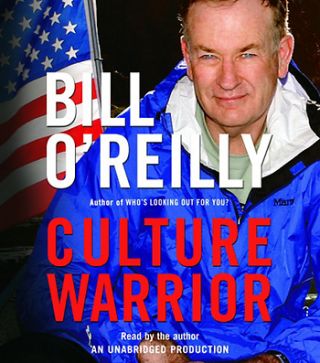Philosophy
Secular-Progressive? You're Probably a Humanist
Did Bill O'Reilly give humanists their best elevator pitch?
Posted March 17, 2014
As humanism has tried to define itself over the years, one of the biggest challenges has been to develop an “elevator pitch” – a quick explanation that effectively explains humanism to the uninitiated. Although lengthy explanations of humanism can be easily found (such as “Humanism and Its Aspirations,” an overview of humanism published by the American Humanist Association in 2003 and signed by 21 Nobel laureates), a good sound-bite has been elusive.
Some have suggested that the first sentence of Humanism and Its Aspirations can be utilized as the elevator speech: “Humanism is a progressive philosophy of life that, without supernaturalism, affirms our ability and responsibility to lead ethical lives of personal fulfillment that aspire to the greater good of humanity.”
This isn't too bad, I suppose, but it doesn’t exactly roll off the tongue, does it? If this is our best elevator pitch, it shows that humanists may be quite intelligent, but hardly great marketers.
In recent years some have suggested that the phrase “Good without God” might be a better nutshell explanation of humanism. Derived from a book by that title by Greg Epstein, Harvard’s humanist chaplain, the term neatly summarizes a basic proposition of the humanist worldview: that we humans can be good without a belief that we will be punished or rewarded in an all-powerful man in the sky.
The problem with “Good without God” as an elevator pitch, however, is that most people really don’t want to talk about God, especially when they first meet you in an elevator. Frankly, if you start talking about God — pro or con — when you first meet most people, you’ll probably notice that they tend to take a step or two back. It’s just not very cool to go there so quickly.

Should humanists thank O'Reilly?
Ironically, perhaps the best elevator pitch for humanism may have been invented by conservative Fox commentator Bill O’Reilly. In labeling the evil villains who stand as the biggest threat to the arch-conservative worldview espoused by Fox News and the hard-right, theocratic politicians it endorses, O’Reilly used the label “secular-progressive.” These “secular-progressives” are the bad guys in O’Reilly’s narrative, standing opposed to the true patriots who accept the corporatist, militaristic, pro-Christian agenda of Fox and the GOP.
In truth, it would be hard to find two words that better define “humanist” than one who is secular (that is, either nonreligious or non-theistic) and progressive. (If one were secular and conservative, the objectivist philosophy of Ayn Rand would be a better label, but “secular-progressive” almost perfectly summarizes a humanist in two words.)
Of course, a true secular-progressive won’t accept O’Reilly’s simplistic vilification of the term, but instead will stand ready to rebut his absurd suggestion that “culture warriors” (O’Reilly’s term for those standing opposed to secular-progressives) are the real patriots. Secular-progressives are hardly unanimous in their views on social and political issues, but they generally stand for rational public policy based on evidence. Pragmatic, respectful of both freedom and equality, and skeptical of concentrated power in all forms, secular-progressives have nothing to be ashamed of. (After all, it's the culture warrior camp that includes those who believe the world is less than 10,000 years old! Need I say more?)
Thus, if you hit the button in an elevator and someone notices your “humanist” button or t-shirt and asks what it means, consider this response: “I’m a secular-progressive.”


